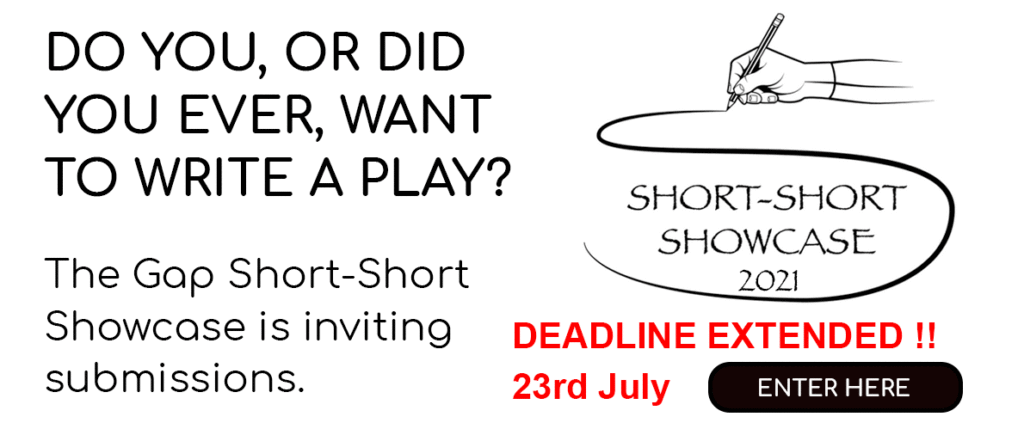Start with Passion. Something, anything you feel strongly about. Waiting with the phone to your ear while an endless recording says ‘We’ll be with you shortly…’ The state of the world. The constraints of the Lockdown, the handling of the pandemic. The joys of love, of swimming in the sea. The pains, the blames, the unexpected discoveries…
Characters. Who are they, where have they come from, what have they done, what do they want to, what do they need to do – and how are they going about doing that…? How do your character/s deal with something that changes? With problems? How they react to, and how they affect one another? What about external circumstances? What is happening to them right now as we watch? Are they waiting on one number in the Lotto, or on the Gardaí to knock on the door? Or, unexpectedly, both…?
In any script, but particularly in something as short as this, grab our attention. And do it quickly. Hold it, twist it, surprise it. Make us laugh, intrigue us, make us feel. One way is to have characters we recognise confronting the twists and surprises that life throws up. And have them do that in one thousand words.
Be open. Be prepared to astonish yourself, to be astonished by how the characters and situations develop, and see where the writing takes you.
Scripts are not just dialogue – or in this case, duologues. There can be monologue; and duologue; as well as mixes of both. Characters can talk directly to the audience. Or to themselves. There can be exits, entrances; there can be silence, action, mime…
This format does not allow offstage characters, but during the public readings stage directions can be read to indicate off-stage sound effects. For example, the happy sounds of a party offstage, while someone sits alone outside… And a simple line of stage direction can tell us if your script is set on Mars, in ER, on a beach in Portugal; in the distant past, or in a thousand light years from now.

